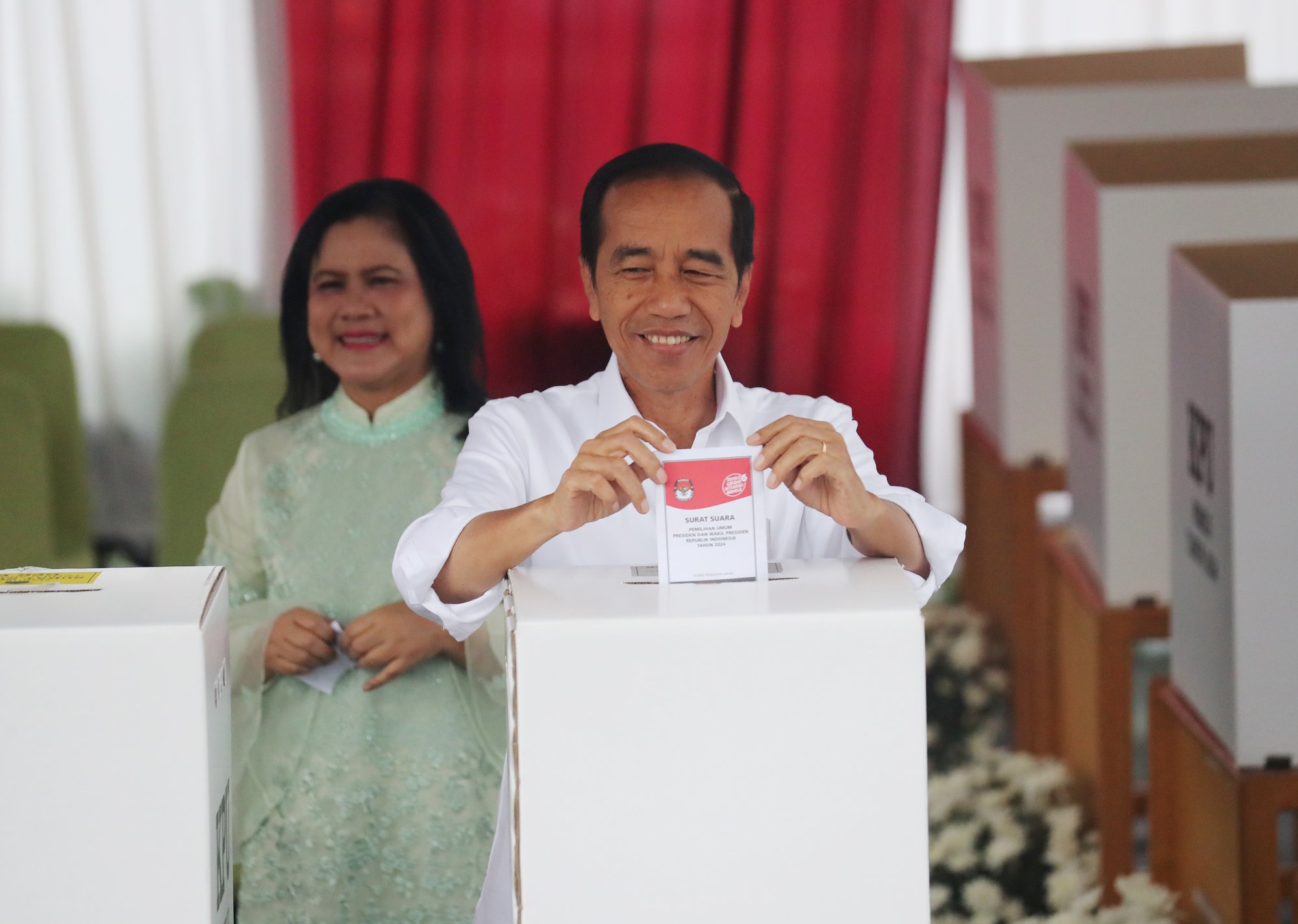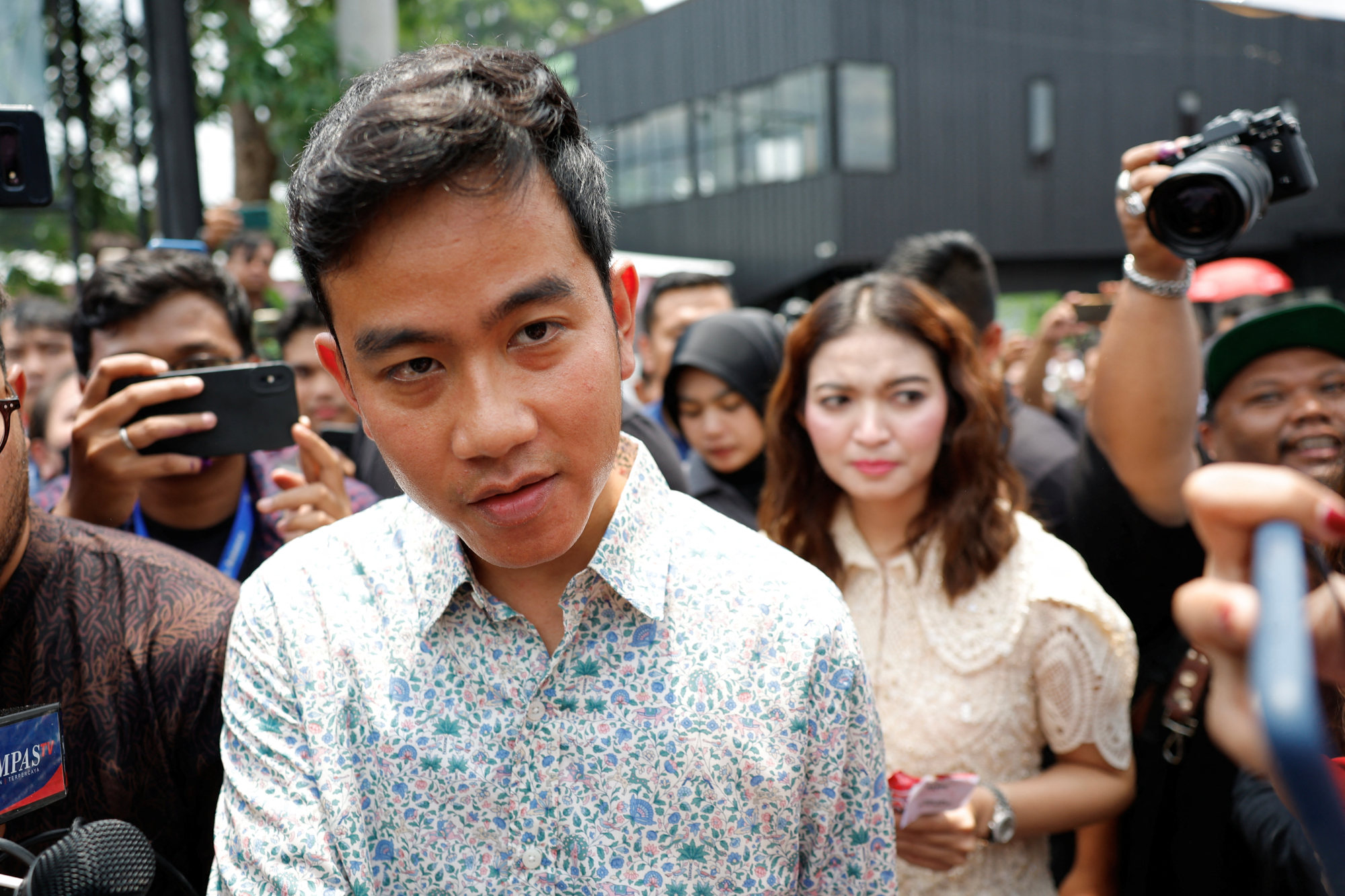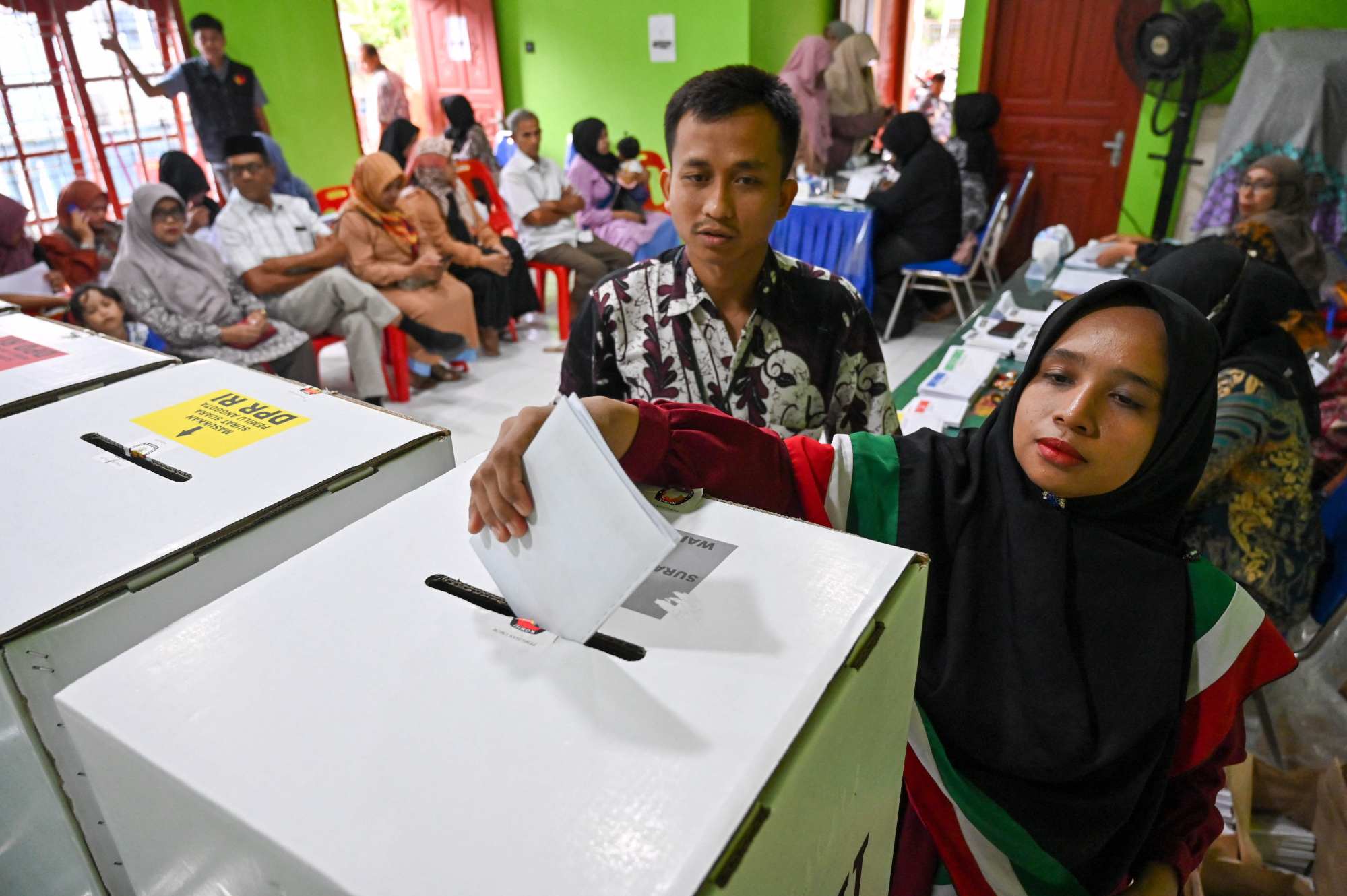Standing in the way of a single-round victory for Prabowo are the ruling Indonesian Democratic Party of Struggle’s (PDI-P) candidate Ganjar Pranowo, and opposition figure Anies Baswedan. Ganjar and Anies are hoping to prevent Prabowo from surpassing 50 per cent of the overall vote and 20 per cent of votes in half of Indonesia’s 38 provinces, which would force a run-off election between the first and second-place finishers on June 26.
Heavy rain overnight across the country disrupted voting in the morning, as some polling stations were reportedly flooded and had to be moved to private houses. The rain forced all candidates to postpone their votes by around an hour.
Ganjar cast his ballot in the city of Semarang, and his VP pick Muhammad Mahfud voted in Yogyakarta, while Prabowo cast his vote near his sprawling estate in Hambalang, West Java.
All candidates are scheduled to convene at their respective headquarters in Jakarta to monitor the quick counts.
Asked by reporters if he’s optimistic that he will win in one round, Prabowo said “God willing”.

Widodo voted at a polling station near the presidential palace in Central Java, telling reporters he hoped the election would run smoothly.
“We hope … all the people are able to exercise their right to vote well and that [the election] is conducted honestly, fairly and securely,” he said.
Responding to concerns about vote-rigging, the president said there were mechanisms in place to address such issues. “If there’s fraud on the ground, reports can be filed to the elections supervisory body. If it is not resolved there … then a lawsuit [can be filed] to the Constitutional Court.”
Two opinion polls released last week showed Prabowo with over 50 per cent of voter support, signalling he has a strong chance of winning the presidency today. Anies and Ganjar have trailed far behind, with around 23 and 20 per cent of the vote, respectively, in recent surveys.

While elections in Indonesia are seen as free and fair, this electoral cycle has not been without controversy. Prabowo’s lead in the polls can largely be attributed to Widodo’s tacit support, which became especially apparent after the president’s eldest son, Gibran Rakabuming Raka, joined Prabowo’s electoral ticket.
This past week has seen heightened criticisms and protests from students and pro-democracy activists, who have accused the president of bias and of leveraging his power to sway state institutions to support Prabowo and 36-year-old Gibran.
While voting is not mandatory in Indonesia, turnouts in national elections are consistently high at an average of around 75 per cent, according to figures from previous elections. Citizens over 17 years old are allowed to vote, and at least a third of the voters in this year’s election are under the age of 30.

A total of around 820,000 polling stations, staffed by 7 million election officials and independent workers across the country’s three time zones, opened at 7am and closed at 1pm. In addition to picking their preferred presidential candidate, voters were also casting their ballots for members of parliament and local representatives. Nearly 200,000 police personnel were deployed to guard polling stations.
Overseas citizens have voted since February 5 in more than 3,000 polling stations outside of Indonesia or by mail.
Results can be expected as early as Wednesday evening because Indonesia uses a ‘quick count’ method in which volunteers from independent polling groups tally ballots from a sample of voting stations.
The official result may take weeks to confirm, but quick counts in previous elections had proven to be a reliable indicator of the final tallies.

